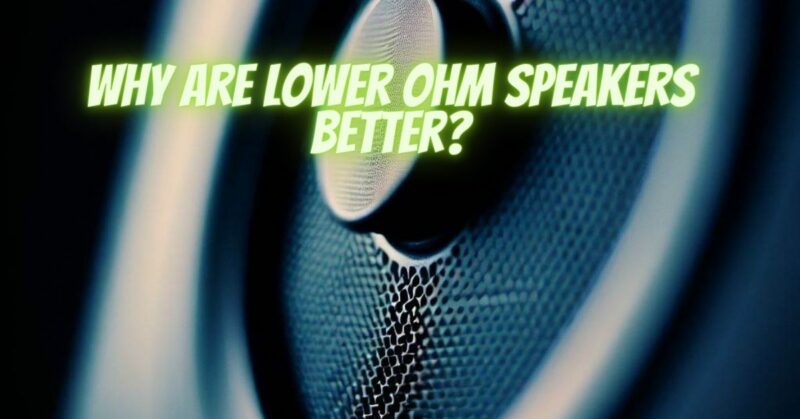The impedance of a speaker is the measure of its electrical resistance. Speakers with lower impedance (4 ohms) are considered to be “easier to drive” than speakers with higher impedance (8 ohms). This means that they require less power to produce the same volume.
So, why are lower ohm speakers better? There are a few reasons:
- They are more efficient: Lower ohm speakers are more efficient at converting electrical power into sound power. This means that they can produce the same volume with less power, which can save you money on your electricity bill.
- They can handle more power: Lower ohm speakers can handle more power than 8 ohm speakers. This means that they can be used with more powerful amplifiers, which can result in better sound quality.
- They can produce more bass: Lower ohm speakers can produce more bass than 8 ohm speakers. This is because bass frequencies require more power to reproduce, and lower ohm speakers are able to handle more power.
However, there are also some disadvantages to using lower ohm speakers:
- They can be more difficult to drive: Lower ohm speakers can be more difficult to drive than 8 ohm speakers. This is because they require more power from the amplifier, and not all amplifiers are able to provide enough power to drive them properly.
- They can be more susceptible to distortion: When driven too hard, lower ohm speakers can be more susceptible to distortion. This is because they are able to handle more power, and when they are pushed beyond their limits, they can start to produce a distorted sound.
Overall, lower ohm speakers can be a good choice for people who want to get the most out of their speakers. They are more efficient, can handle more power, and can produce more bass. However, they can also be more difficult to drive and more susceptible to distortion. It is important to consider all of these factors when choosing speakers and amplifiers.


